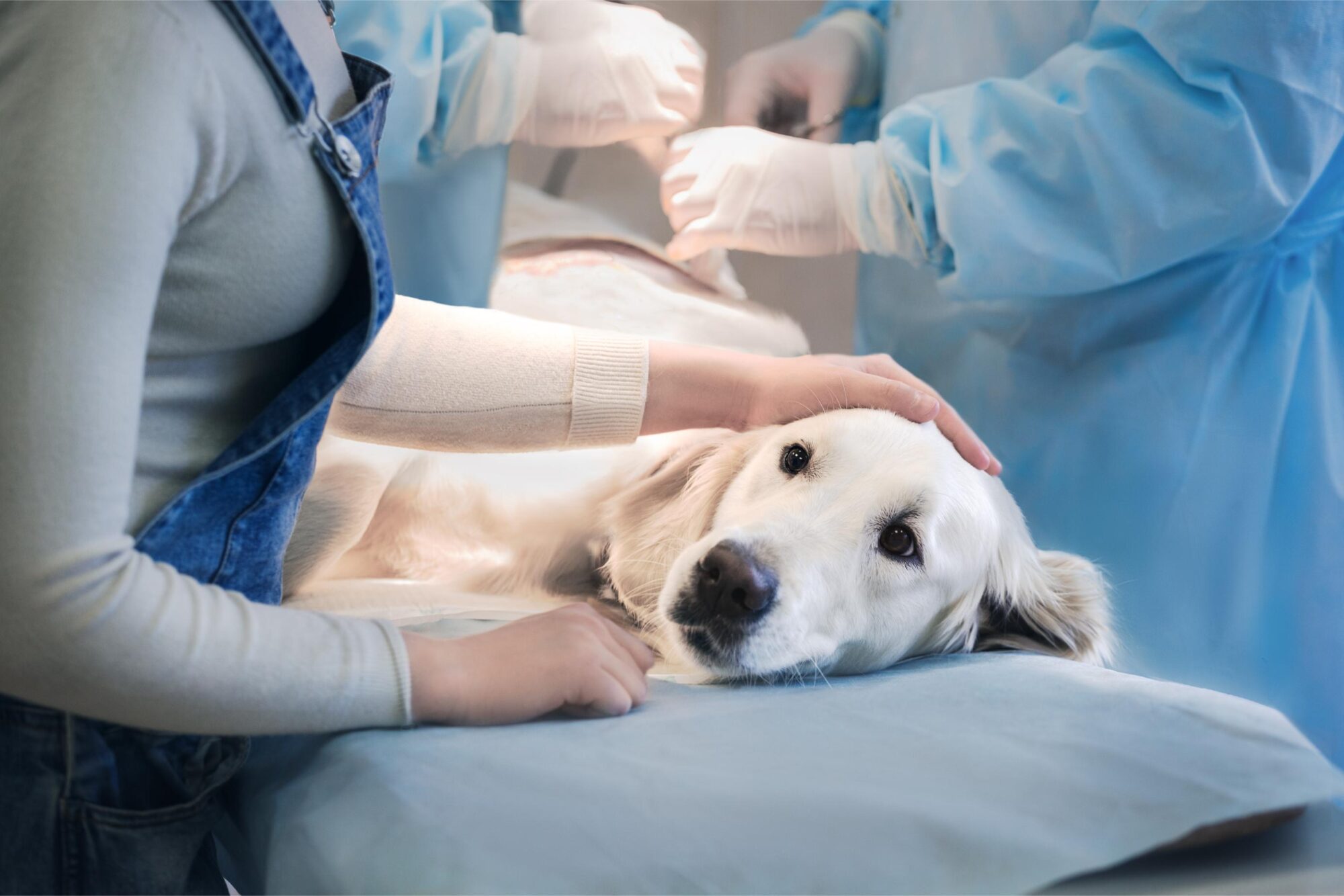Expert Surgical Care For Your Pet’s Health: Flowers Mill Veterinary Hospital’s Focus On Excellence

Almost all pets will need to have some kind of surgery during their lifetime. Whether it’s for spay and neuter, dental surgery, a wound, repair, or some other kind of soft tissue surgery, these types of procedures are a big part of what we do at Flowers Mill Veterinary Hospital. Our expert team is dedicated to bringing your pet the best possible care, no matter what kind of surgical attention is needed.
A Great Surgical Experience
Not all veterinary surgery is created equal. While anesthesia always carries some risk, you can rest assured that our veterinary surgery protocols make you and your pet’s experience as safe and comfortable as possible.
Pets undergoing surgery at our hospital receive:
- A preanesthetic examination prior to surgery
- Appropriate preanesthetic testing to ensure readiness for anesthesia
- A personalized anesthetic protocol
- A unique and proactive pain management plan tailored for the individual pet and procedure
- Diagnostics such as radiographs (X-ray) as deemed necessary
- Close monitoring before, during, and after the procedure by experienced staff and high-tech equipment
- A clear post-operative home care plan for you to follow
Most of having a great surgical experience lies in working together as a team, and you know we have your back!
Types of Soft Tissue Surgery at Flowers Mill
We are able to perform several types of common surgeries at Flowers Mill Veterinary Hospital. Some of the procedures we perform routinely include:
- Spay and neuter: Spaying or neutering your dog or cat are the procedures utilized to remove their reproductive organs, preventing unwanted litters and many health conditions. Talk to us about when we recommend “fixing” your pet.
- Mass removals: It is very common for pets to develop lump and bumps, especially as they age. Mass removals, biopsies, and other soft tissue surgeries can aid in diagnosis and treatment of a variety of pet ailments.
- Abdominal surgeries: Sometimes pets will need an abdominal procedure performed. These might include things like retrieval of a foreign body that is stuck in the digestive tract, correcting of urinary bladder stones, or taking biopsies of an abnormality.
- Dental surgery: Regular pet dental cleanings are a part of good proactive wellness care for most animals. These are done as anesthetized procedures in order to provide the safest and most effective care. Sometimes during these anesthetized examinations, the need for further care including dental surgery and extractions is identified.
- Wound repair: Lacerations and other wound repair procedures commonly need surgical attention to help minimize complications and speed healing.
We know that having a pet undergo surgery can be a stressful experience. We do everything we can to minimize the anxiety and worry that comes along with the experience. Our dedication to excellence shows in everything we do, including pet surgical procedures.

